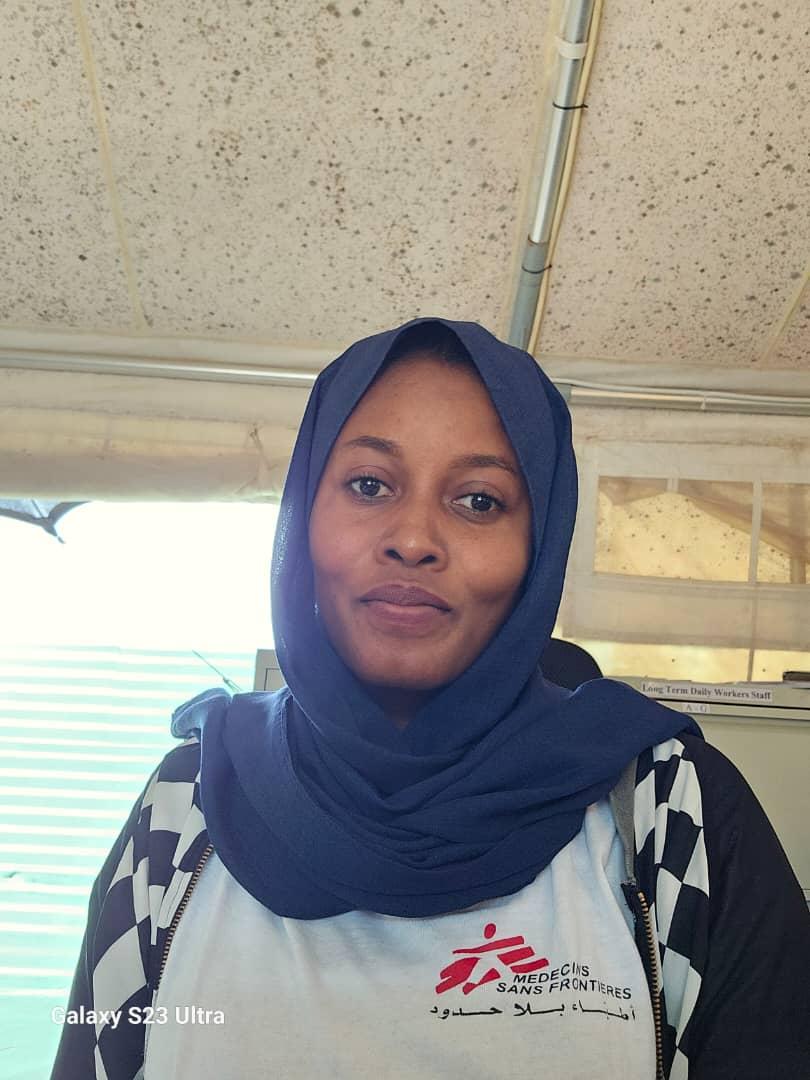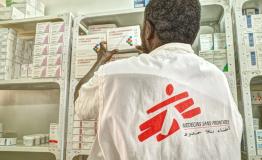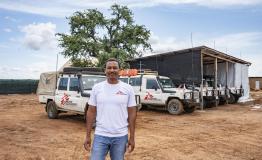Imtithal Hamid, MSF Human Resource assistant in Sudan.
Médecins Sans Frontiers/Doctors Without Borders (MSF) has been a dream come true for me ever since I was a child in elementary school. Two of my uncles worked for them, and their stories ignited a passion for humanitarian work within me. Little did I know, my own life would take a dramatic turn, blurring the lines between being a supporter and someone in need of support.
My passion for humanitarian work stemmed from a deep desire to help those in need, especially internally displaced people (IDPs) and refugees. This wasn't just some abstract concept – it became deeply personal when war erupted in Sudan in April, last year. News reports and frantic calls to my family painted a picture of chaos and destruction. My once peaceful city was under attack.
While I wasn't in Khartoum at the time, the war's impact was immediate. My family was forced to flee, becoming Internally Displaced People (IDPs) moving from state to state, and searching for safety. MSF, the organization I'd always admired, was now a lifeline for countless Sudanese, including myself and family. We received medical care and sometimes even food assistance.
The war was a harsh reality check. While I'd heard stories of conflict, I'd never experienced it firsthand. The fear, the loss, the uncertainty – it was overwhelming. My family and friends scattered, some even losing their lives. My own home became a memory, a collection of belongings looted and destroyed.
Every day, I witness the resilience of the human spirit, the unwavering dedication of my fellow staff.Imtithal Hamid, MSF Human Resource assistant in Sudan.
War is a brutal teacher. We never knew what the day would bring. Drone strikes became a chilling reality, and a sense of unease lingered. The constant struggle for safety wasn't just faced by the displaced populations; it infiltrated our daily lives, forcing evacuations for staff.
The human cost of war is staggering. Friends lost, homes destroyed, memories stolen – these are the scars we carry. It's not easy. The memories of violence lingered, and every loud noise triggered a wave of anxiety. We weren't sure if each day would be our last.
Some colleagues left Sudan altogether. It pained me to see them go, yet I understood their need for safety, it's a bittersweet loss.
My childhood home in Bari is gone, a collection of memories turned to rubble. The life I knew no longer exists. Yet, amidst the loss, there's a newfound strength. My experience fuels my commitment to MSF's work. Every day, I witness the resilience of the human spirit, the unwavering dedication of my fellow staff.
My story is just one of countless lives upended by the war. Memories of a peaceful life are now replaced with displacement and uncertainty.
I hope for a future where Sudan is at peace, and we can rebuild what we have lost. Until then, I will continue to do my part with MSF, driven by the belief that we can make a difference even in the darkest times.



